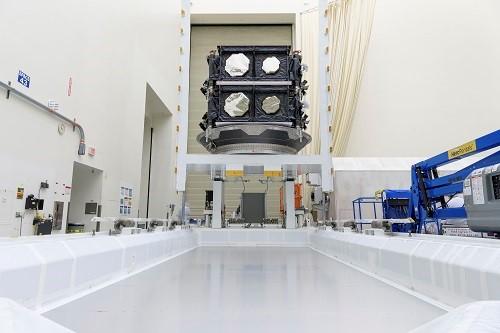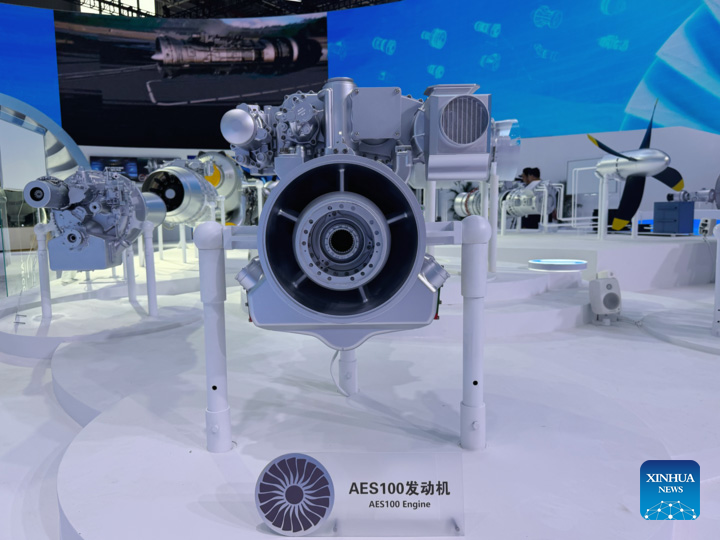In a bold move towards sustainability, Wastefront, a company focused on innovative environmental solutions, is set to revolutionise the aviation fuel industry by converting end-of-life tires (ELTs) into Sustainable Aviation Fuel (SAF). Vianney Vales, the CEO of Wastefront, recently sat down with Aviation Week’s Jeremy Kariuki to discuss the company’s latest project—a state-of-the-art plant in Northern England’s Port of Sunderland. The plant aims to address two pressing environmental issues: the global surplus of waste tires and the growing demand for sustainable alternatives to conventional jet fuel.
The Wastefront Process: From Tires to SAF
At the heart of Wastefront’s approach lies a two-step process that transforms used automotive tires into valuable resources. The first step involves pyrolysis, where waste tires are subjected to extremely high temperatures in the absence of oxygen. This process breaks down the tires into pyrolysis oil and carbon black. The pyrolysis oil, a liquid derived from the decomposed gas of the tires, is then refined further into SAF—a complex and sophisticated product essential for aviation.
“The carbon black component requires minimal refinement and can be resold to tire manufacturers as recovered carbon black,” explained Vales. “The pyrolysis oil, on the other hand, undergoes several additional steps to be converted into SAF, making it a viable and sustainable alternative to traditional jet fuel.”
Competitive Costs and Environmental Benefits
One of the most striking aspects of Wastefront’s SAF production method is its cost-effectiveness. According to Vales, the company’s process is highly competitive, with production costs estimated to be less than $1,000 per ton of SAF. This is significantly lower than the current cost of SAF produced through the widely-used HEFA (Hydroprocessed Esters and Fatty Acids) process, which stands at around $1,500 per ton.
Vales attributes this cost efficiency to two factors: the low capital expenditure (CapEx) and operational expenditure (OpEx) of the Wastefront process, and the use of waste pyrolysis oil as feedstock, which is cheaper than the vegetable oils used in HEFA.
“The feedstock for our SAF is a true waste product, unlike the limited and more expensive vegetable oils used in other processes,” Vales noted. “This allows us to combine low CapEx and OpEx with affordable feedstock, resulting in a significantly lower cost of production.”
Addressing the Global Tire Waste Problem
The scale of the tire waste problem is immense, with an estimated one billion ELTs generated globally each year. Wastefront’s plant in Sunderland is poised to make a dent in this issue, although Vales acknowledges that their impact will be relatively small compared to the global market.
The UK, for instance, produces around 50 million ELTs annually. A full-scale commercial plant from Wastefront could process approximately eight million tires per year, accounting for 16% of the UK’s total. The company’s long-term business plan includes the construction of five or six plants over the next five years, each capable of processing millions of tires annually.
“We want to address the pollution problem at its source,” Vales said. “By processing tires domestically rather than exporting them for incineration, we can offer a sustainable solution to tire manufacturers and contribute to a cleaner environment.”
A Sustainable and Economic Boost for Sunderland
Beyond its environmental impact, Wastefront’s new plant is expected to bring significant economic benefits to the Sunderland community. Once a thriving industrial hub, Sunderland has faced economic challenges in recent decades. Wastefront’s investment of approximately £100 million in the plant’s construction and operation is poised to revitalize the area.
The project will create around 100 highly-skilled jobs, and the majority of the investment will remain within the local economy. Vales expressed gratitude for the strong support from Sunderland’s city council and the port, emphasizing the positive impact the plant will have on the region.
Integrating Experience from the Oil and Gas Industry
Vales brings a wealth of experience from his previous roles in the oil and gas sector, where he managed refineries, shipping companies, and trading firms. This background has proven invaluable in Wastefront’s mission to produce SAF from alternative feedstocks.
“SAF is a sophisticated product, similar to traditional jet fuel but made from different feedstocks,” Vales explained. “My experience in oil refining has been crucial in developing the processes needed to create SAF from pyrolysis oil.”
Vales also highlighted the growing trend of integration between the traditional oil and gas industry and the green energy sector. Wastefront has partnered with oil refineries to co-process pyrolysis oil into SAF, leveraging existing infrastructure to streamline production and accelerate market entry.
“This collaboration between the old and new energy sectors is a positive sign for the future,” Vales said. “By combining our expertise with the capabilities of the oil and gas industry, we can achieve greater environmental impact and drive the energy transition forward.”
A Promising Future for Sustainable Aviation
As Wastefront’s Sunderland plant begins construction, the company is poised to lead the charge in transforming waste into sustainable fuel. By addressing both the global tire waste problem and the need for greener aviation solutions, Wastefront is setting a new standard for innovation in the energy sector.
With ambitious plans for future expansion and a commitment to sustainability, Wastefront’s efforts represent a significant step towards a cleaner, more sustainable future for the aviation industry and beyond.




